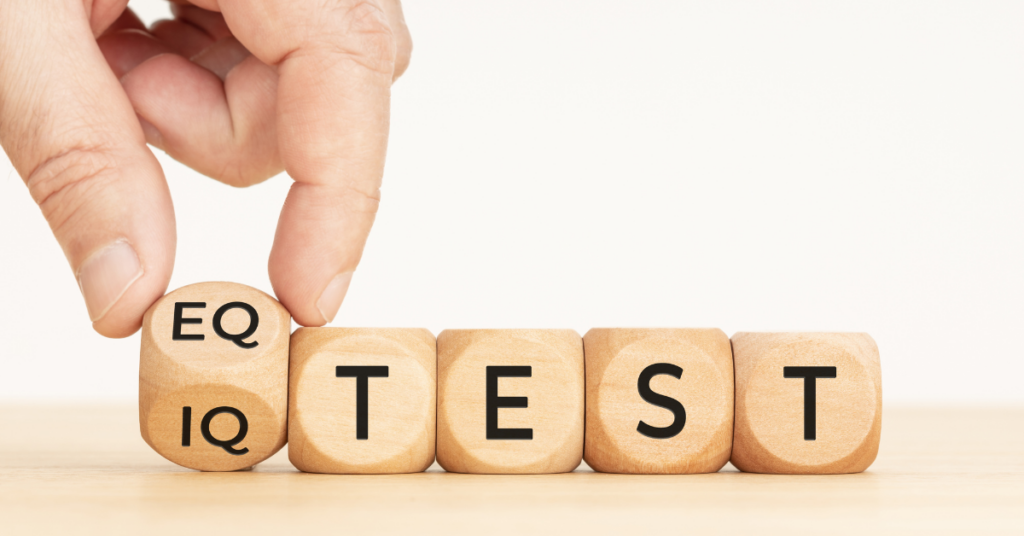What is Emotional Intelligence? How Does it Help in the Workplace?

Emotional intelligence is no longer an exotic quality that is a ‘good-to-have’ for professionals. It is increasingly becoming an imperative in the context of workplace performance and behavior. A higher emotional intelligence has been found to make employees more reliable and more capable of navigating workplace conflict. What’s more, people with higher emotional intelligence actually earn more as per The Guardian! As a result, it can potentially set them on the path to professional success. To help you understand its relevance further, let’s dig deeper: What is emotional intelligence and why does it matter in your work life?
What is Emotional Intelligence?
 Coined in 1990 by researchers John Mayer and Peter Salovey, emotional intelligence (what we commonly refer to as EQ) refers to the ability to understand, process, and manage emotions. It also includes the capacity to recognize and influence the emotions of those around us. The good news for professionals is that emotional intelligence is a learnable ability, and can be built by identifying the area(s) for development: These can be any of the following four primary components of emotional intelligence.
Coined in 1990 by researchers John Mayer and Peter Salovey, emotional intelligence (what we commonly refer to as EQ) refers to the ability to understand, process, and manage emotions. It also includes the capacity to recognize and influence the emotions of those around us. The good news for professionals is that emotional intelligence is a learnable ability, and can be built by identifying the area(s) for development: These can be any of the following four primary components of emotional intelligence.
- Self-awareness: Forming the core of emotional intelligence, self-awareness helps you determine your strengths and weaknesses and also identify your emotions and their behavioral implications. As a result, it is critical for success at the workplace since it helps in maintaining long-term relationships, and sharpening self-perception.
- Self-management: The ability to regulate your emotions in moments of stress and maintain a positive mindset is called self-management. It helps you respond to adverse situations instead of reacting impulsively.
- Social Awareness: The ability to read the room is invaluable to a leader and social awareness helps you do just that. While managing your emotions is crucial, understanding the dynamics at play within an organization is equally important. This aids communication and promotes empathy, both of which have a positive impact on individuals as well as groups.
- Relationship Management: While interacting with a group, be it socially or professionally, conflicts of interest are bound to arise. In such situations, communicating clearly as well as influencing and mentoring others are necessary skills. Avoiding conflicts leaves them unresolved, leading to pent-up grievances, drained energy and time, and other long-term negative consequences.
Now that we’ve answered the question ‘what is emotional intelligence’, we’ve set the background for understanding why it matters at the workplace.
Why is Emotional Intelligence Important in Business?
While subject matter knowledge and technical expertise may land you your dream job, it doesn’t guarantee growth or success in the longer run. What can help you fulfill your ambition of being a leader is emotional intelligence. It is commonly accepted that EQ is the foundation for several critical leadership skills such as time management, stress management, feedback, and collaboration.
Since emotions precede thought in the human brain, they have the power to influence decision-making and behavior. Because of this, successfully managing emotions at work goes a long way in resolving conflicts, fostering a sense of collaboration, creating a psychological safety net within teams, and motivating yourself and others.
In light of the growing competition in the job market, this type of intelligence has evolved into a highly sought-after leadership skill. A survey conducted by TalentSmart showed EQ to be the strongest predictor of success across industries. While emotional intelligence informs all aspects of business, it is especially relevant to leadership positions as such individuals set the organization’s tone. In addition, low EQ impacts fiscal performance, brand value, and perception, whereas technical skills can only go so far.
Signs of Low Emotional Intelligence
Subpar emotional intelligence manifests in various ways. Here are some of the most common signs.
1. The Need to Always be ‘Right’
Emotionally deficient individuals seem to get into arguments over their need to be ‘right’. Be it with friends, family, or coworkers, they get entangled in disputes and refuse to see reason in the other’s perspective. They even ignore the facts in trying to drive their point home to win at all costs and, not surprisingly, deal poorly with criticism.
2. Being Oblivious to Others’ Feelings
Individuals with low EQ are often uncomfortable about learning how others genuinely feel. As a result, they remain oblivious to their surroundings, struggle to understand others’ emotions, and are prone to inappropriate behavior. This is especially relevant to professional settings where such a lack of sensitivity can heavily damage how employers’ and coworkers’ perceptions of you.
3. Passing the Buck
A marked sign of low EQ is a lack of accountability. Rather than holding themselves responsible, their first reaction is to pass the blame onto someone else. This is a sign of avoidance and results in poor relationship management. If you don’t know what is emotional intelligence, you also tend to play the victim and portray yourself as misunderstood.
4. Poor Coping Skills
For those with poor EQ, emotionally-charged situations are an added source of stress. They struggle with understanding their own emotional responses and those of others and are also likely to engage in self-sabotage, avoidance, and pretence. This further aggravates the situation and can often lead to complex problems that cause decay.
Traits of Someone with High Emotional Intelligence
In addition to being self-aware, self-regulating, and socially aware, emotionally intelligent individuals exhibit many admirable qualities.
1. Openness to Change
Emotionally intelligent individuals have a strong sense of self which helps them handle novelty with ease. They enthusiastically seek opportunities for growth and savor new experiences that allow them to learn and evolve.
2. Empathy
Individuals with high levels of EQ display empathy and are better equipped to interact with people from various walks of life. They are also good at reading non-verbal cues and taking preventive measures against potentially hurtful situations.
3. Eager Learners
Emotionally intelligent people have a natural curiosity which helps them persevere through new experiences and challenges. They are action-oriented and unafraid to admit ignorance, realizing the need to fill existing gaps in knowledge and skills. Their ego is never a hindrance to learning.
4. Assertive When Necessary
There’s a fine line between aggression and assertion, and nobody understands this better than emotionally intelligent people. So while they are adept at advocating for themselves and establishing boundaries, they are also careful about showing respect and being polite.
How to Develop High Emotional Intelligence
 Cultivating this type of intelligence is a process of continuous learning. Once you understand what emotional intelligence is and its various components, you can develop it through various simple shifts in behavior. Adopt strategies that will build the four emotional intelligence skills (self-awareness, self-management, social awareness, relationship management). For example, exposing yourself to new people and experiences and leaving your comfort zone will help build social awareness. Reflecting on your emotional responses and identifying your triggers will grow your self-awareness. Just breathing right and sleeping well will allow you to self-manage better. An openness to receiving and incorporating constructive feedback is also a potent tool for relationship management.
Cultivating this type of intelligence is a process of continuous learning. Once you understand what emotional intelligence is and its various components, you can develop it through various simple shifts in behavior. Adopt strategies that will build the four emotional intelligence skills (self-awareness, self-management, social awareness, relationship management). For example, exposing yourself to new people and experiences and leaving your comfort zone will help build social awareness. Reflecting on your emotional responses and identifying your triggers will grow your self-awareness. Just breathing right and sleeping well will allow you to self-manage better. An openness to receiving and incorporating constructive feedback is also a potent tool for relationship management.
Frequently Asked Questions
1. How Can I Measure or Test My Emotional Intelligence?
There are various certified tests and assessments that accurately measure emotional intelligence.
2. Is Emotional Intelligence More Important Than IQ?
The growing consensus among hiring managers and thought leaders highlights the importance of EQ over IQ across industries.
3. Can Emotional Intelligence be Learned Quickly?
If you actively take the steps to build the skills, you can enhance your EQ with dedication and consistency within a short period.
4. What Personality Type is Most Naturally Emotionally Intelligent?
No single personality type is more inclined to EQ than another, as it’s an ability one can develop.
5. How to Work With Someone That Has Low Emotional Intelligence?
Demonstrating a high level of EQ yourself is an effective way to tackle low emotional intelligence. Knowing what is emotional intelligence is the first step to working with emotionally unintelligent individuals.
6. What Books Teach Emotional Intelligence?
Here’s a curated list of books from the Harvard Business Review you can refer to for enhancing your EQ.
Now that you know what emotional intelligence is and why it is important, try and enhance it in yourself and your employees. Check out Emeritus’ courses and learn all about leadership for success in your career!
Write to us at content@emeritus.org




